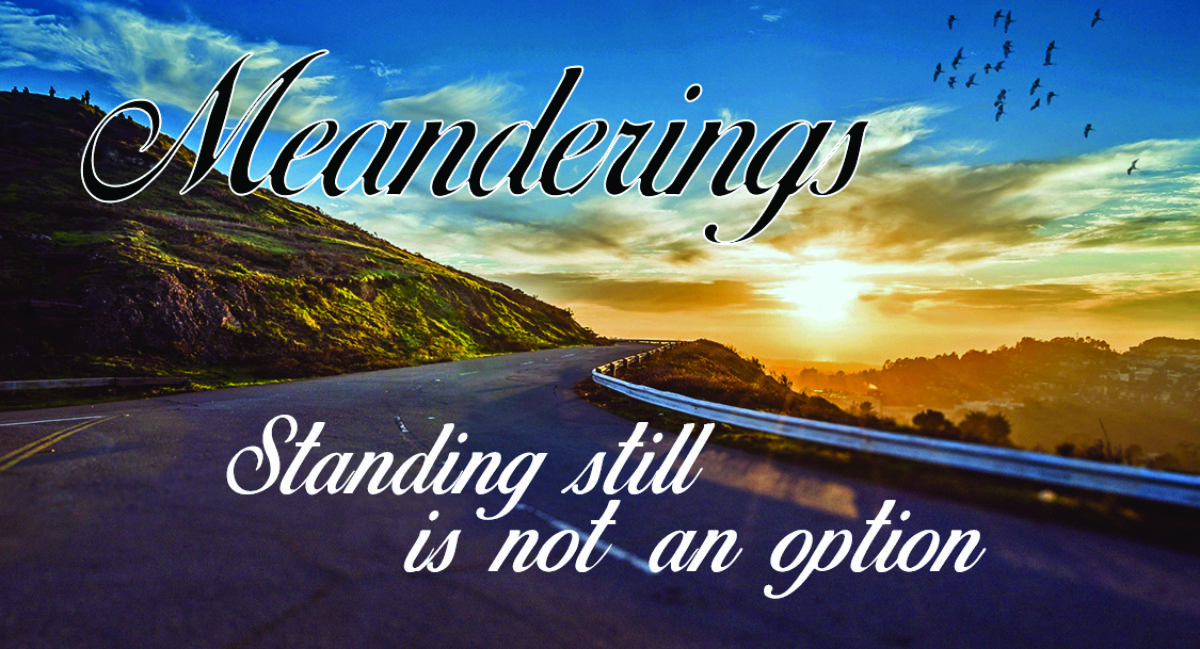I have been called many things over my lifetime but chatterbox is not one of them. Yet lately that is what I call myself, to myself. Why would I do that?
I am Canadian so I will blame the weather. This has been a particularly harsh winter. There has been much wailing and gnashing of teeth (mine) as my Bert, whose only contribution to our travel adventures was: “Where are we going next?” uttered before we had unpacked the bags from our last trip, is no longer allowed to travel. I had no idea that I would miss our travels, our winters away in some warm place or on a ship so very much. So here we were stuck in winter in our wonderful but COLD country.
My Bert would often say that Canada is the best country in the world except for the weather. I agreed, but would temper my enthusiasm with the thought that if Canada had perfect weather it would be perfect and there is no such thing.
Here is another observation that my Bert would voice often: “Paula is always telling me that I talk too much but she talks too.” “Yes, I talk but not anywhere as much as you and in any case you are such a talker, someone has to be the listener” I would answer. Then with a laugh he would say: ‘That is why we have the best marriage. I talk and you listen.” That was said with a tone to make it unbelievable. Yet, all that was true.
My Bert is really an open book and loves to talk. Many a time we have been to a restaurant and before dinner is completed the entire wait staff knew more than they should about us, from how we met right up to our present situation. I would be kicking him under the table to tell him to be quiet to no avail. I would be ignored. I would then have to become the interpreter, rephrasing or correcting or echoing my Bert’s pronouncements and also becoming a listener.
Oh, how we talked together. My Bert had such stories to tell! We are both curious about our world, our country, people, places and things. My Bert devoured news and current affairs. I read and we talked about everything. Our conversations encompassed silly things, weighty things, family things and couple things. We agreed, we disagreed and agreed to disagree and we laughed.
Oh, how I miss that talking together. Now, trying to have a conversation is a Herculean task. I give up any thought of having a sustained conversation. In the absence of that verbal communion I have become the chatterbox. The sentences are made up of the basic noun and verb. Heck, it could be just one word. I get back one word in return and sometimes the word returned is completely out of context. When my Bert attempts to express a thought it ends abruptly halfway and I try to finish it. Sometimes I succeed but that is becoming more difficult as time passes. It is difficult to enter Alzheimer world when a thought is unfinished.
The inanity is mind numbing. When does speaking become just noise? When does it lose its main function of communicating? It tests my patience and it saddens me to see him struggle to find the words. I think he knows what he would like to say but it takes a valiant effort to get it out. Sometimes he just gives up. The frustration is apparent. He begins to pick at his fingernails and mumbles.
How can I relieve the anxiety? I say: “Don’t worry. Tell me tomorrow.” Then I will rub noses or give a hug. These now are the best communication tools. There is no need for words then.
The Meander: Should anyone be looking for ‘tomorrow’, ‘soon’, ‘later’ please check with a caregiver for a loved one with dementia. We have usurped them. We are wearing them out completely. “When do we go to Breda?” That is Bert’s birth city in The Netherlands. “Tomorrow.” “When are the kids coming?” They left maybe ten minutes prior. “Soon.” “Are we going to bed now?” We have just finished lunch. “Later.” A loving touch, a smile, a hug and holding hands are enough to relieve his anxiety. We still ‘talk’.
